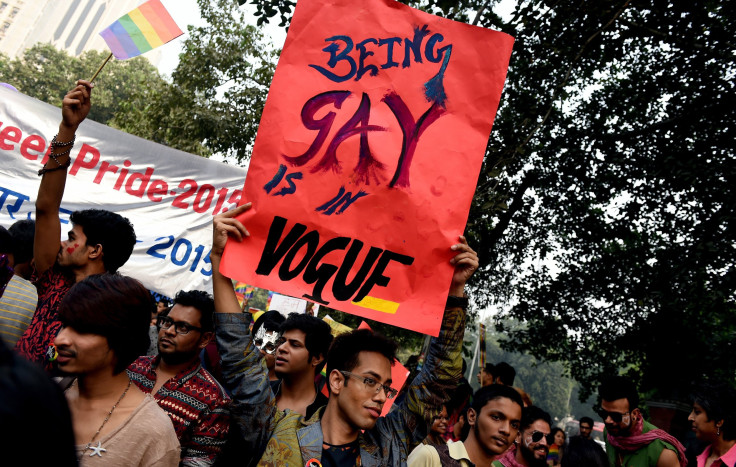India Top Court To Revisit 2013 Verdict Criminalizing Gay Sex Under Section 377

India’s Supreme Court on Tuesday agreed to revisit a 2013 judgment that upheld a law criminalizing homosexuality in the country, sparking protest from numerous gay rights activists. The court heard a curative petition seeking a revision of an earlier court order perceived as a "miscarriage of justice.”
A five-judge panel headed by the chief justice of India will reportedly hear the petition against Section 377 of Indian Penal Code (IPC) — a 153-year-old colonial-era law — that criminalizes homosexual acts for being “against the order of nature.”
A three-judge bench reportedly said that the 2013 ruling would be re-examined by a larger bench of judges. The judges said that the issue was a "matter of constitutional importance,” the BBC reported.
The curative petition, which was filed by NGO Naz Foundation and Lesbian, Gay, Bi-sexual and Transgender (LGBT) rights organizations in March 2014, is the final appeal available against an original verdict.
Activists have claimed that police and authorities often misuse the law to harass homosexuals across the country. Under Section 377, a same-sex relationship is punishable by a 10-year jail term.
“It is definitely a step forward," Anand Grover, a lawyer for a gay rights group, told Reuters after the Supreme Court’s decision Tuesday, as activists gathered outside the courtroom cheered.
Under the controversial section 377, “carnal intercourse against the order of nature” is considered a criminal offense. Although the Delhi High Court had, in a landmark judgment in 2009, decriminalized consensual sexual acts between adults and struck down the section as discriminatory, the verdict was later overturned by the country’s supreme court in 2013.
© Copyright IBTimes 2025. All rights reserved.





















